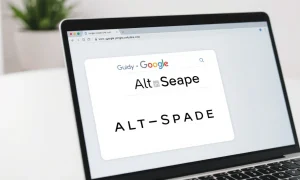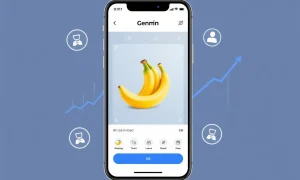Imagine a world where your software handles payments automatically without human intervention. Google and Coinbase just made this vision reality by launching a groundbreaking protocol that enables AI agents to exchange value autonomously. This revolutionary development marks a significant leap toward fully automated economic systems where intelligent software can act and transact independently on behalf of users.
Google and Coinbase Pioneer Autonomous Software Payments
Google unveiled an open-source payment protocol this Tuesday that fundamentally transforms how AI systems interact financially. This innovative framework allows intelligent agents to exchange value using both traditional bank cards and dollar-backed stablecoins. The protocol represents a major extension of Google’s Agent-to-Agent framework introduced last April, which initially focused on standardizing software interactions.
Key Features of the New Payment Protocol
The autonomous software payments system incorporates several critical components that ensure security and efficiency. Firstly, it provides multi-rail support, enabling transactions through conventional payment networks and blockchain-based stablecoins. Secondly, the protocol includes built-in security measures for user consent verification and transaction safeguards. Additionally, it offers complete traceability and auditability for enterprise integration.
Key protocol elements include:
- Agent-to-agent interoperability for seamless communication and value transfer
- Dual payment infrastructure supporting traditional and cryptocurrency systems
- Advanced security protocols ensuring user authorization and transaction safety
- Enterprise-grade audit trails for compliance and verification purposes
Industry Collaboration and Development Partners
Google developed this autonomous software payments protocol in collaboration with Coinbase and consulted with over 60 partner companies. Major participants include Salesforce, American Express, and Etsy, indicating broad industry support. This collaborative approach ensures the protocol meets diverse business needs while maintaining interoperability standards across different platforms and systems.
Google Cloud’s Blockchain Integration Strategy
This initiative aligns with Google Cloud’s broader strategy to build programmable financial infrastructure for institutions. The company previously revealed its Universal Ledger project, which aims to create settlement infrastructure compatible with both traditional finance and blockchain systems. James Tromans, Web3 director at Google Cloud, emphasized that the new payment protocol was “designed from the start to support both traditional infrastructures and stablecoins.”
Competitive Landscape and Market Implications
The emergence of autonomous software payments creates new competitive dynamics between centralized and decentralized platforms. Meanwhile, the Ethereum Foundation announced creating a dedicated team for decentralized artificial intelligence called dAI. This development positions Ethereum as a trusted foundation for the AI economy. Consequently, the race to dominate automated Web3 infrastructure intensifies as different approaches compete for market adoption.
Future Applications and Economic Impact
This protocol potentially transforms AI agents into automated buyers, intermediaries, and management systems. Businesses can leverage autonomous software payments to streamline financial operations, reduce transaction costs, and enhance operational efficiency. The technology enables seamless value exchange between intelligent systems without human intervention, potentially revolutionizing how companies handle financial transactions and resource allocation.
Frequently Asked Questions
What are autonomous software payments?
Autonomous software payments refer to systems where AI agents can independently initiate, process, and complete financial transactions without human intervention, using either traditional payment methods or cryptocurrency systems.
How does the Google-Coinbase protocol ensure security?
The protocol incorporates multiple security layers including user consent verification, transaction safeguards, and built-in audit trails to ensure all autonomous transactions meet security and compliance standards.
Can businesses use both traditional and crypto payments?
Yes, the protocol supports multi-rail payments, allowing businesses to choose between traditional bank card systems and dollar-backed stablecoins based on their specific needs and preferences.
What companies participated in developing this protocol?
Over 60 companies contributed to the protocol’s development, including Coinbase, Salesforce, American Express, and Etsy, ensuring broad industry representation and practical applicability.
How does this affect the future of automated economies?
This protocol lays the foundation for fully automated economic systems where AI agents can handle financial transactions independently, potentially transforming how businesses operate and interact financially.
Is this protocol available for public use?
Google has released the protocol as open-source, making it available for developers and businesses to implement and build upon for their specific autonomous payment needs.








